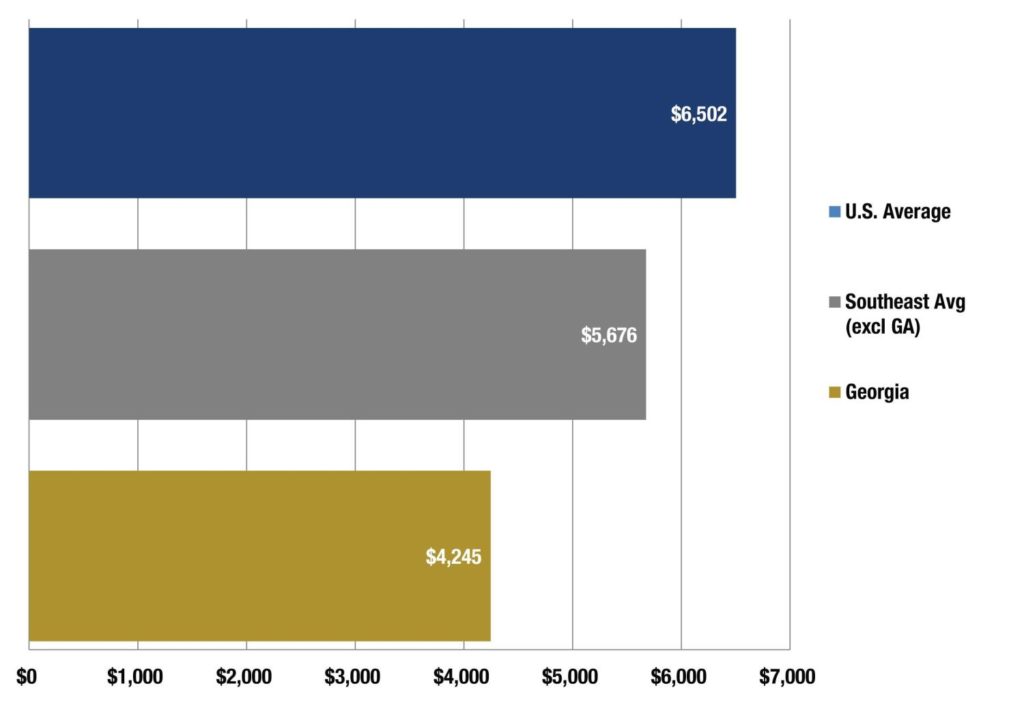Georgia stands to lose $4 billion in federal Medicaid funding over ten years if the proposed American Health Care Act of 2017 (AHCA) passes, according to a new Urban Institute report. That loss is almost certain to shift costs to the state and lead to cuts to program eligibility, benefits or health care provider payments.
Georgia’s Medicaid program provides critical access to health care for almost 2 million people, the majority of whom are children, seniors, and people with disabilities. For more than 50 years Medicaid has provided states an open-ended federal match to help pay for health coverage for underserved residents. Georgia now relies on federal money to cover more than two-thirds of the state’s Medicaid costs. The legislation making its way through the U.S. Congress proposes capping Medicaid payments based on historical spending per enrollee. A capped system would not keep up with rising health care costs, resulting in cuts to Medicaid funding.
Georgians who meet the state’s strict Medicaid eligibility criteria would no longer be guaranteed coverage in the AHCA. With a loss of federal funds under a capped Medicaid system, states can choose to restrict eligibility as a way to reduce enrollment and spending. States can also choose to reduce covered services or lower provider reimbursement rates, both of which limit access to care for Georgians with the greatest need. States can also raise new revenue to offset the loss of federal dollars and maintain service levels. But Georgia would need to increase state spending by $4 billion over ten years to do that, an 8 percent increase. This would put a strain on the state’s budget and take money away from other state priorities, including education, public safety and transportation.
Georgia already makes one of the country’s lowest Medicaid investments on a per-enrollee basis. The state has yet to expand Medicaid. This leaves little room for the state to cut spending to make up for the federal funding loss. In fact, Georgia ranks 49th out of the 50 states in Medicaid spending per enrollee and ranks lower than the rest of the southeastern states, as shown in the accompanying chart. As things stand, very few non-disabled adults are covered in Georgia’s Medicaid program. Children, seniors, and people with disabilities are most likely to be hurt the most by Medicaid budget cuts.
Georgia Ranks Low in Medicaid Spending Per Enrollee Compared to Nation, Region

The proposed federal health care legislation also includes an amendment to give states the option to convert Medicaid to a block grant for adult and children enrollees. Georgia lawmakers should consider the negative impact of a block grant on the state budget. Similar to the per-capita cap, a block grant cuts funding and puts the burden on states to make cuts to enrollment and benefits. Under a block grant Georgia also is left with all of the additional costs if enrollment increases, which can happen during an economic downturn when more people lose income and become eligible for Medicaid.
Preserving the structure of Medicaid is critical to maintain the care that one in five Georgians depend on for access to a doctor. A loss of $4 billion to the state’s health programs over ten years holds dire consequences to the state’s finances and, more importantly, its people.








